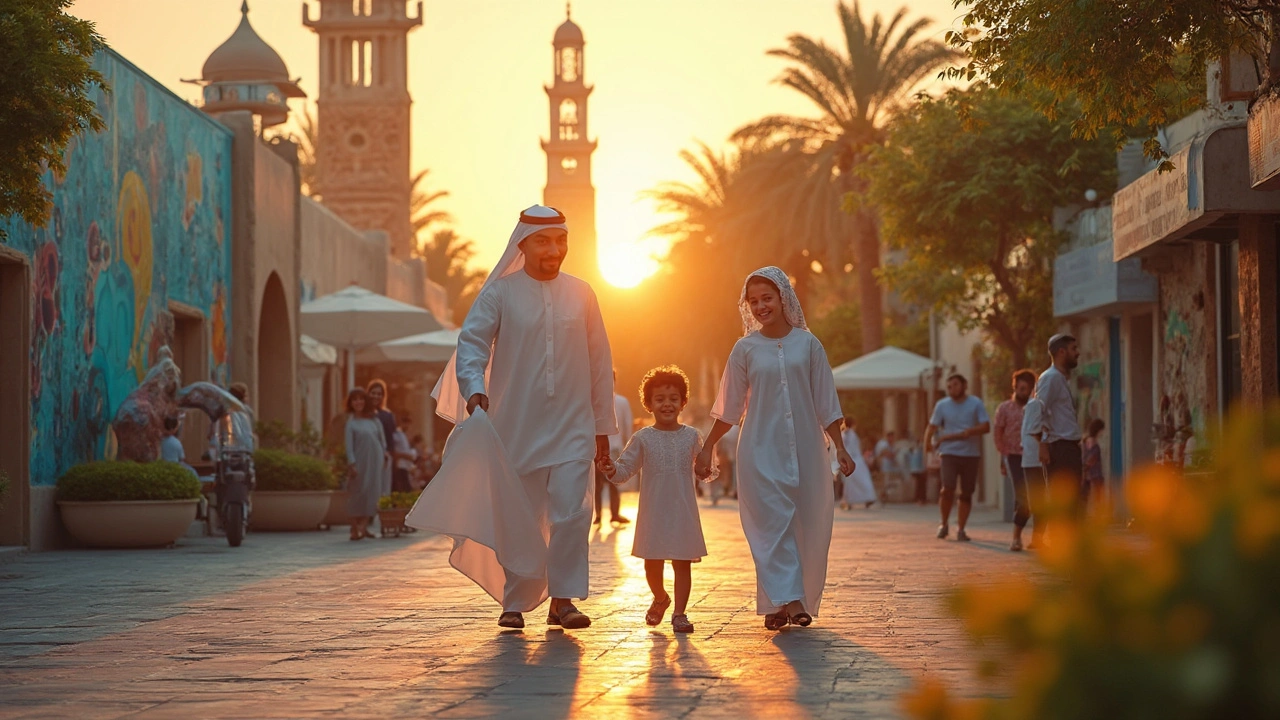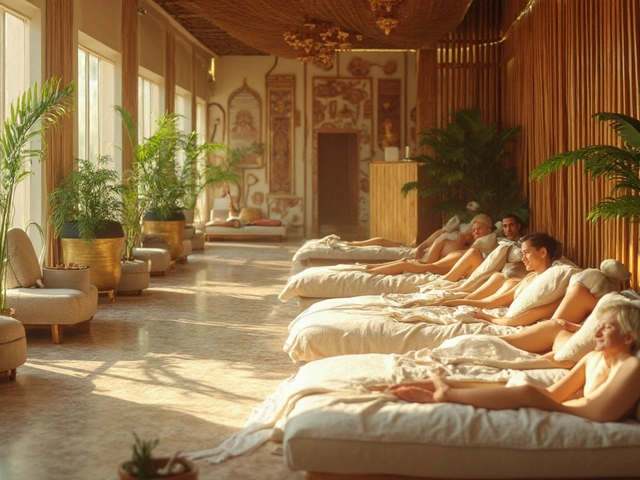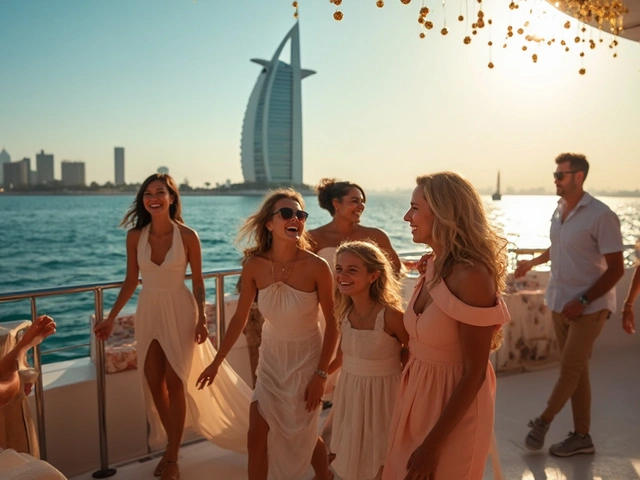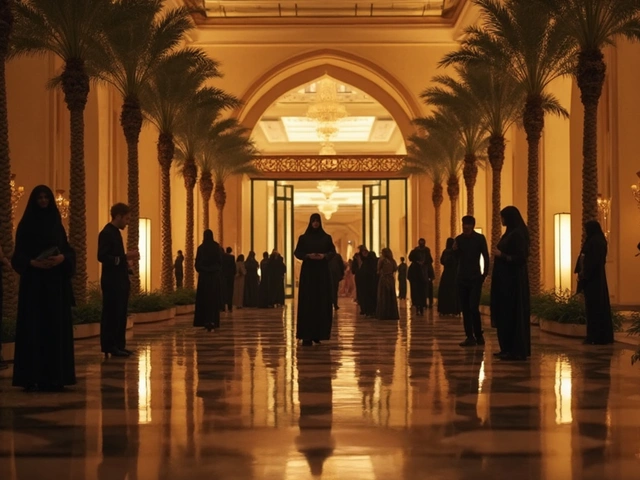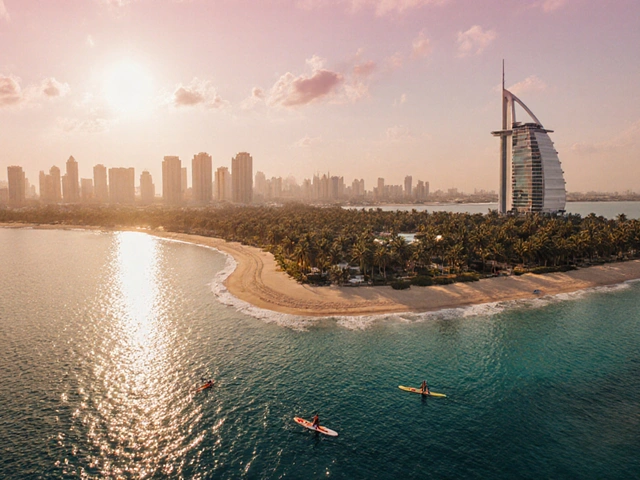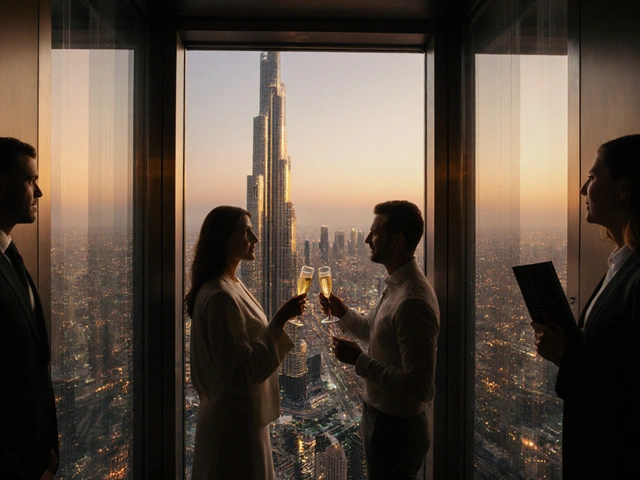UAE Traditions – What You Need to Know Before Visiting Dubai
If you’re heading to Dubai, you’re not just looking at skyscrapers and shopping malls. The real magic lives in the everyday customs that have shaped the Emirates for centuries. Knowing a few simple traditions helps you connect with locals, respect the culture, and enjoy a richer travel experience.
Everyday Etiquette You Can Start Using Today
First off, greetings are warm and simple. A handshake or a friendly "Salam Alaykum" (peace be upon you) works everywhere. When you’re invited to a Emirati home, bring a small gift – dates, sweets, or even a nice tea set are appreciated. Remove your shoes at the entrance; most families keep a shoe rack for guests.
Dress modestly in public spaces. While the city’s nightlife is relaxed, it’s still best to keep shoulders and knees covered in markets, mosques, and traditional neighborhoods. A lightweight scarf can be handy for women, and men should avoid sleeveless tops in conservative areas.
Conversation topics matter. Talk about travel, food, or the beautiful desert landscape. Religion and politics are sensitive subjects, so steer clear unless you’re sure the person is comfortable discussing them.
Traditions You Can Experience Firsthand
Dubai’s modern attractions blend with heritage sites that let you live the traditions. Book a desert safari and you’ll get more than dune bashing – most tours end with a Bedouin‑style camp, where you can try camel riding, watch traditional music, and share a fire‑cooked feast of grilled lamb and rice.
Visit the Al Fahidi Historical Neighborhood (Al Bastakiya) to wander narrow lanes lined with wind towers. Here you’ll find art galleries, cafés, and the Sheikh Mohammed Centre for Cultural Understanding, which offers a “Culture Lunch” where you sit on the floor, eat with your hands, and learn about Ramadan, Emirati hospitality, and the importance of family.
If you love food, don’t miss the chance to taste authentic Emirati dishes. Head to a local market and try “machboos” (spiced rice with meat or fish) or “harees” (a slow‑cooked wheat porridge). Ordering a cup of Arabic coffee (gahwa) with a pinch of cardamom is a perfect way to break the ice with locals.
For a deeper dive, check out the Dubai Museum in the Al Fahidi Fort. The museum showcases traditional clothing, pearl diving tools, and historic photographs. It’s a quick, free way to see how the UAE transformed from a fishing and trading hub to a global city.
When you’re in the city during Ramadan, the evenings come alive with special “iftaar” meals. Restaurants set up sprawling buffets, and streets are lit with lanterns. Even if you’re not fasting, joining an iftaar offers a chance to share a meal with families and understand why the holy month is treasured.
Lastly, remember that generosity is a core value. If someone offers you a date or a cup of tea, accept it with gratitude. Small gestures like saying "Shukran" (thank you) go a long way.
By keeping these simple tips in mind, you’ll blend right in, enjoy authentic experiences, and leave Dubai with memories that go beyond the usual tourist spots.

